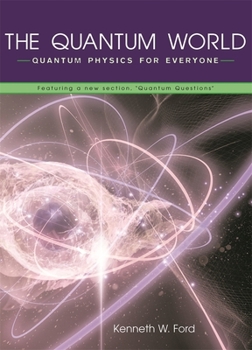The Quantum World: Quantum Physics for Everyone
Select Format
Select Condition 
Book Overview
As Kenneth W. Ford shows us in The Quantum World, the laws governing the very small and the very swift defy common sense and stretch our minds to the limit. Drawing on a deep familiarity with the discoveries of the twentieth century, Ford gives an appealing account of quantum physics that will help the serious reader make sense of a science that, for all its successes, remains mysterious. In order to make the book even more suitable for...
Related Subjects
Physics Quantum Theory Science Science & Math Science & Scientists Science & TechnologyCustomer Reviews
Review By a Non-Physicist
A brief comment
Brings the reader closer to QM than anything else I've read
The most readable description of quantum physics
The Quantum World: Quantum Physics for Everyone Mentions in Our Blog

Back to school time means beach reads come out of your bag and textbooks go in, but that doesn't mean the fun is over. While we (obviously) embrace all things learning and reading (because books), even we have to admit that some textbooks are a bit, um...dry. To ease the transition, here are 22 alternative academic titles that are entertaining, practical and, well, educational.





